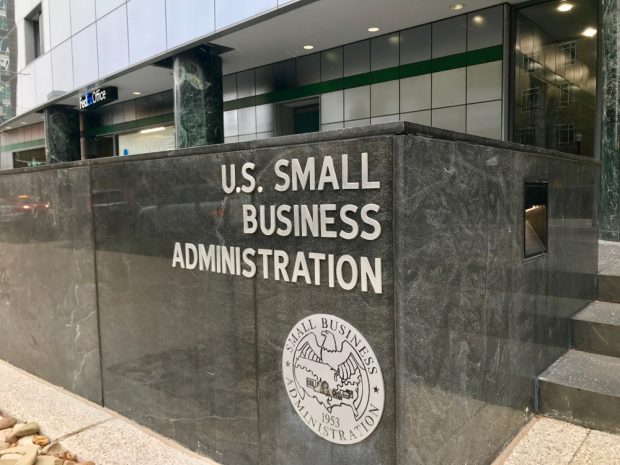 Small Business Administration headquarters building entrance (Image: Shutterstock).
Small Business Administration headquarters building entrance (Image: Shutterstock).
CUNA, NAFCU and even the American Bankers Association received a potential glimpse of good news on Tuesday as Sen. Tim Scott (R-S.C.) introduced a bill to prevent the Small Business Administration from becoming a direct lender.
Sen. Scott's bill, the Protecting Access to Credit for Small Businesses Act, would thwart the SBA from making loans under its 7(a) program. This bill added a new wrinkle to the ongoing push by NAFCU, CUNA and other organizations to stop President Joe Biden's provision in the "Build Back Better" bill that would allow the SBA to lend money directly to businesses.
Recommended For You
CUNA President/CEO Jim Nussle said of Sen. Scott's bill, "We support all efforts to prevent the SBA from becoming a direct lender and thank Sen. Scott for this legislation. The current public-private partnership between lenders and the SBA benefits everyone involved, helping foster important relationships between businesses and their community. Turning the SBA into a direct lender would negatively affect these relationships and disrupt the current system at a time when small businesses need access to capital more than ever."
In a statement, NAFCU SVP of Government Affairs Greg Mesack had a similar response.
"NAFCU applauds Senator Tim Scott for introducing the Protecting Access to Credit for Small Businesses Act, a critical piece of legislation prohibiting the SBA from having the explicit direct lending authority to originate and distribute loans to small businesses," Mesack said. "Senator Scott's bill protects the relationships between small businesses and their trusted community financial institutions, including credit unions."
CUNA and NAFCU each sent letters to Sen. Scott on Tuesday. In NAFCU's letter, Vice President of Legislative Affairs Brad Thaler said, "We share your concern that the government does not belong in the business of making loans, and historically has been unsuccessful at direct lending."
In its letter to Sen. Scott, CUNA raised questions about the SBA's ability to pull off any kind of direct lending since the SBA, unlike credit unions, is not personally invested in the local communities where these loans would be distributed. "By becoming a direct lender to small businesses, the SBA is likely to harm local financial institutions' relationships with businesses and possibly hamper these businesses from establishing important banking relationships that can only help their business survive and flourish," the letter read.
CUNA and NAFCU have also supported a similar bill that was introduced in the House by Rep. Blaine Luetkemeyer (R-Mo.).
Last month, CUNA, NAFCU, the ABA and other banking groups sent letters to Senate Majority Leader Chuck Schumer (D-N.Y.) and Minority Leader Mitch McConnell (R-Ky.) asking that they drop the provision in the "Build Back Better" Act that would provide $2 billion over 10 years to allow the SBA to offer loans of $150,000 or less directly to small businesses or through partnerships with third parties.
This week, lawmakers indicated that a vote on the BBB bill won't happen until 2022.
© Touchpoint Markets, All Rights Reserved. Request academic re-use from www.copyright.com. All other uses, submit a request to [email protected]. For more inforrmation visit Asset & Logo Licensing.







